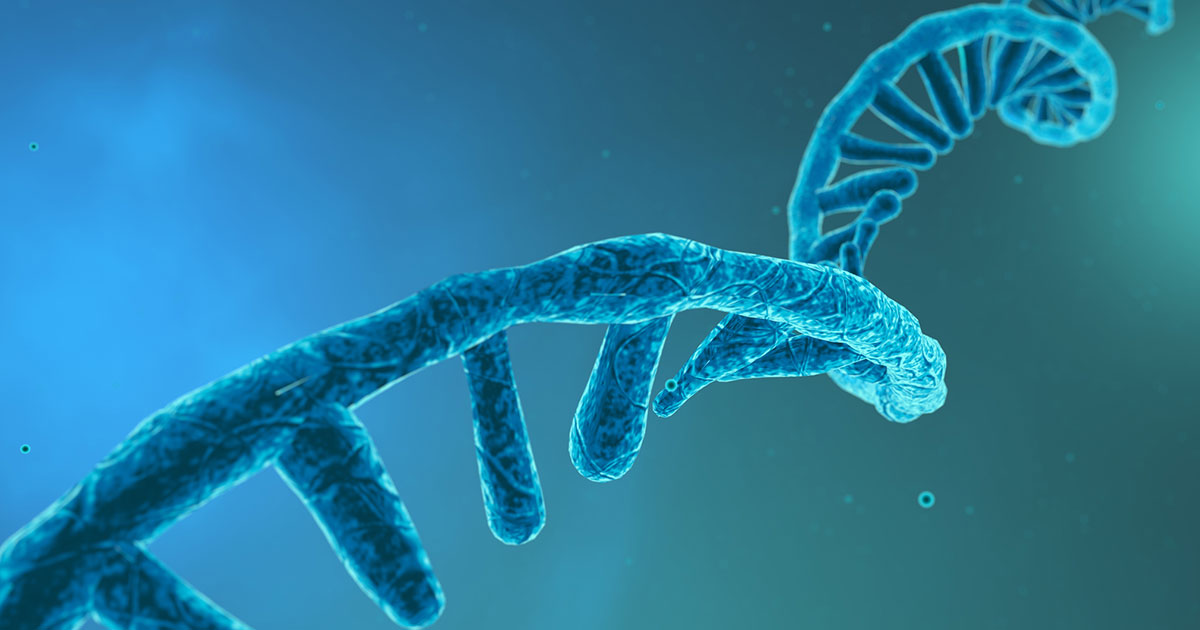
Lost a bit in the celebrations and fanfare for the new COVID-19 vaccines is the breakthrough science used to develop them. For decades, researchers have eyed messenger ribonucleic acid (mRNA) as a potential for vaccines and the treatment of many viruses, including Zika and influenza, and for several diseases like heart disease and cancer.
Until now, practical applications of mRNA technology have been elusive. Doctors, researchers and scientists now hope that the two COVID-19 vaccines developed by Moderna and Pfizer are harbingers for new mRNA-based vaccines and treatments for cancer and other conditions.
“The recent developments related to the success employing mRNA in the production of a COVID19 vaccine provides realistic hope for the potential for this strategy to be used with other types of vaccinations, including in cancer prevention, and possibly even treatment of active cancer,” says Maurie Markman, MD, President of Medicine & Science at Cancer Treatment Centers of America® (CTCA). “Of course, we must wait to see the results of ongoing and future laboratory and clinical research to know if this promise ultimately becomes reality.”
Vaccines, antigens and antibodies
When cells become cancerous, they take on features that make them different from healthy cells. A cell may express excessive amounts of normal proteins or molecules or those that are unique to cancer cells. These are called tumor antigens, and they are the focal point of much of the mRNA research and clinical trials dedicated to potential cancer vaccines and therapies. Tumor antigens come in two main types:
Tumor-associated antigens (TAAs) found on cancer cells and sometimes on some healthy cells
Tumor-specific antigens (TSAs) found only on tumor cells
Tumor antigens often are related to growth factors, or proteins that help regulate cell growth and division. When these growth factors become mutated or are found in unusually high numbers, cells may be able to grow unchecked, forming tumors. Identifying these antigens may help doctors develop a cancer treatment appropriate for a specific tumor’s genetic features. However, some very common tumor antigens, such as those in the RAS family of genes or the TP53 gene, may be identified in a tumor, but cancer therapies have not yet been developed to target those specific features.
TAAs and TSAs may also be used to help diagnose cancer. For example, the prostate-specific antigen (PSA) may be found in high numbers in men who have prostate cancer. High PSA numbers may also be produced because of other conditions, such as a prostate infection. That’s why it’s important to follow up with other diagnostic tests.
How it works
Researchers in Germany suggest mRNA-based cancer vaccines or treatments may work in one of two ways:
By targeting antigens: mRNA may be engineered to produce antibodies that target specific tumor antigens. That is the principle behind the two mRNA vaccines approved for COVID-19. mRNA vaccines target the spike proteins found protruding from the outside of the coronavirus cells that cause the COVID-19 infection.
With personalized treatment: In this potential therapy, immune cells are removed from the body, re-engineered with mRNA tailored to a patient’s specific cancer, then injected back into the body. The only current cancer vaccine, sipuleucel-T (Provenge®) for prostate cancer, works this way, but it does not use mRNA.
Until now, mRNA has proven to be unstable and difficult to work with. The challenges have been to program the mRNA and make sure it is stable enough to survive long enough in harsh conditions inside the human body to deliver its message to the immune system. It also has to be stored in extremely cold temperatures.
mRNA has several advantages, however. It doesn’t require a virus to work, so it may be more suitable for cancer patients and others with compromised immune systems. Also, mRNA does not interact with or alter a person’s DNA.
The quick development and approval of the COVID-19 vaccines offer hope that mRNA-based vaccines and therapeutics may soon be available for other diseases, including cancer.
“mRNA strategy was really meant for cancer therapy,” says Mashiul Chowdhury, Infectious Disease Program Specialist at CTCA®. “And the study for cancer therapy using messenger RNA technology is still ongoing.”



